What's New
Displaying results 1051 - 1060 of 4913
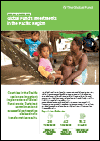
Resource | Publications,
The Global Fund is partnering with governments, medical experts, advocates, civil society and communities affected by HIV, TB and malaria to fight the three diseases and build resilient and sustainable systems for health. As of May 2019, the Global Fund partnership has invested a total of US$366 million in 14 island countries in the Pacific region.
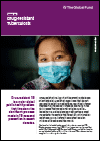
Resource | Publications,
Drug-resistant TB is part of the growing challenge of antimicrobial-resistant superbugs that do not respond to existing medications, resulting in fewer treatment options and increasing mortality rates for illnesses that would ordinarily be curable – including TB. Global development partners must move faster to contain this threat of antimicrobial resistance (AMR) before it escalates to claim millions of lives around the world.

Resource | Publications,
The Hong Kong STD/AIDS update is a composite report on HIV/AIDS reporting and STI caseload statistics published 3 monthly. The current issue has the updated information up to March 2019.
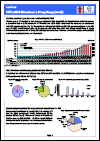
Resource | Fact Sheets,
The first case of HIV infection in Hong Kong was reported in 1984. As of 2018, the Department of Health has received a cumulative total of 9,715 reports of HIV infection and 1,996 AIDS cases under the voluntary and anonymous HIV/AIDS reporting system. The number of HIV reports in 2018 was 624, 8% decrease compared to the 681 cases in 2017. People infected with HIV progress to AIDS when they suffer from clinical complications of severe immunodeficiency due to HIV. In 2018, 139 AIDS reports were received. The most common illnesses presenting at AIDS were Pneumocystis pneumonia and tuberculosis.
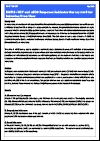
Resource | Fact Sheets,
In Hong Kong, the number of HIV cases transmitted through injecting drug use (IDU) has remained low up till now and contributed to less than 5% of all reported cases cumulatively. However, the potential risk of cluster outbreak and rapid upsurge of infection among the IDU population is always a concern. To monitor HIV-related risk behaviours and access to HIV testing services among IDU, this population has been included as one of the four at-risk populations in the HIV/AIDS Response Indicator Survey (HARiS) implemented since 2013. The sixth round of survey was conducted in 2018 via commissioning to the Stanley Ho Centre for Emerging Infectious Disease, School of Public Health and Primary Care of the Chinese University of Hong Kong.
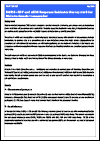
Resource | Fact Sheets,
Male-to-female transgender (TG) has been a neglected and hard-to-reach community, yet various overseas studies have shown that their HIV prevalence can be quite high. To better study the situation in Hong Kong, it has been included as one distinct at-risk populations in the HIV/AIDS Response Indicator Survey (HARiS) since 2014.
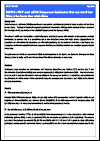
Resource | Fact Sheets,
Men who have sex with men (MSM) has continued to account for a significant proportion of newly acquired HIV infections in Hong Kong. To keep on tracking the epidemic and inform intervention, MSM population has been included as one of the five major at-risk populations in the HIV/AIDS Response Indicator Survey (HARiS).

Resource | Publications,
Asia and the Pacific boasts some of the earliest successes in responding to the HIV epidemic. The region’s response, however, is highly uneven, and several national HIV programmes are not keeping pace with their growing HIV epidemics. Creeping complacency in other countries risks squandering gains made thus far.
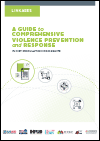
Resource | Tools,
The LINKAGES project developed a programmatic guide and three training manuals to support the integration of violence prevention and response activities with HIV prevention, care and treatment services in key population programs. The guide contains principles, step-by-step instruction, and sample templates and tools. The three training manuals build the knowledge and skills of health care workers, peer educators and outreach workers, and law enforcement officers to understand, assess, prevent and appropriately respond to violence affecting the lives of individuals. The trainings are interactive and include ideas for adaptation.
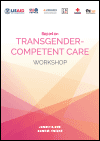
Resource | Publications,
The workshop drew expertise from across the region, as well as from the Fenway Institute. Session topics ranged from introductions to terminology around gender identity and health issues faced by transgender community, to more advanced topics such as gender affirmative hormone therapy and gender affirming surgeries. The workshop also highlighted four unique models that have successfully integrated HIV programming in health service delivery for transgender people: the transgender community health clinic in a public health facility in Thailand, the standalone transgender community health center in the Philippines, the key populations-owned private clinic in Vietnam, and the private sexual health clinic in Indonesia.





